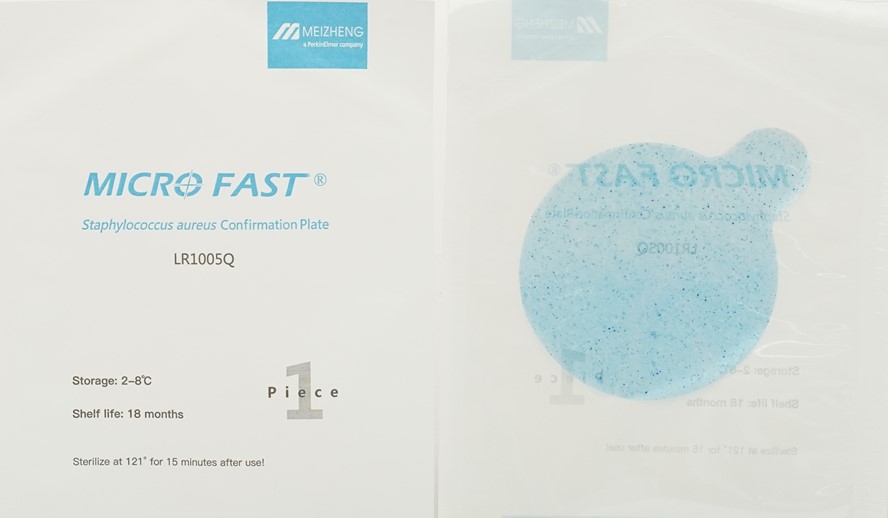The congress of the national parliament ended in Beijing. Main
In Beijing, on March 13, the annual meeting of the National People's Congress (NPC), which began on March 5, ended with a speech by President of the People's Republic of CHINA (PRC) Xi Jinping. Almost simultaneously with the NPC forum, from March 4 to 11, a meeting of the National Committee of the Chinese People's Political Consultative Council (CPPCC) was also held in Beijing. The paired meeting of these two bodies is known in China as "two sessions" and is one of the most important events of the country's political calendar.
2977 deputies took part in the session of the National People's Congress - the highest legislative body of China, which includes deputies - representatives of all administrative-territorial units of the country. 2172 deputies worked within the framework of the advisory council. The NPC deputies approved several key decisions.
Xi's third term
One of the main decisions of the NPC was the approval of China's top leadership. The main intrigue was resolved back in 2018, when an amendment to the Constitution was adopted at the session of the NPC, which abolished the norm on limiting the tenure of the chairman of the country by one person to two five-year terms. This paved the way for Xi Jinping, who has been in office since 2012, to be confirmed for the third time in a row. After he was re-elected general secretary of its Central Committee at the congress of the Chinese Communist Party in the autumn, all doubts that he would be re-elected chairman of the PRC disappeared. On Friday, March 10, all 2977 deputies voted for its approval. The amendment, which limited the chairman's work to two terms, had been in effect since 1982. One of the first telegrams to "dear friend" with "cordial congratulations" was sent by the President of RUSSIAVladimir Putin .
"Under Xi's leadership, the world's second-largest economy is following a modernization model that has never been seen before," China's state-run Xinhua news agency reported on the day of the chairman's re-election. Over the past decade, China's GDP has grown to 121 trillion yuan (about $17.37 trillion) from 53.9 trillion yuan in 2012; The Chinese economy has accounted for more than 18% of the global economy over the past ten years, and its contribution to global economic growth averages over 30%. The country has eradicated absolute poverty and built the world's largest education, welfare and healthcare systems, the Xi era achievement agency listed.
Xi was also re-elected chairman of the Central Military Council.
Read pioneerprodukt.by it product prototype: what it is, why it is needed and how it saves resources “He infuriates me”: what to do if a colleague gets on my nerves It was not worth running:How a 'Great Layoff' Turned into a Great RegretNew faces in leadership
Han Zheng, former First Vice Premier of the State Council of the People's Republic of China, was also unanimously approved as Xi Jinping's deputy on Friday. Before the rotations in the Chinese leadership were changed, it was customary to appoint someone who would become the successor to the chairman to this post. Xi Jinping himself was vice chairman in Hu Jintao's second term (from 2008 to 2013). The appointment of 68-year-old Han Zhen turns the post of deputy into an “honorary pre-retirement,” expert Ivan Zuenko notes on his TELEGRAM channel. The new vice chairman spent much of his career in Shanghai, as did many of the other candidates approved by the close session of the NPC. Some have worked there with Xi, when Xi served as secretary of the Shanghai Party Committee for eight months in 2007.
On Saturday, the NPC approved the new premier of the State Council (government). They became 63-year-old Li Qiang, who since 2017 led the Shanghai City Committee of the Communist Party of China. As HEAD of government, he replaced Li Keqiang, who has led the cabinet since 2013. The new premier is a person close to Xi, a native of Zhejiang province, where he has worked in various posts for about 30 years. He is considered one of Xi Jinping's trusted protégés and a member of Xi's "Zhejiang army," according to Kommersant. Back in 2015, he accompanied Xi on his US state visit . Rapid career advancement was marked by the appointment of Li in 2016 as the head of Jiangsu province, and 15 months later - the head of the Shanghai city committee.
On Sunday, NPC delegates also approved the replacement of all four deputy prime ministers. Ding Xuexiang was approved as Li Qiang's first deputy. He was born in Jiangsu province, but his career began in Shanghai, at the Research Institute of Materials, where in 17 years he went from researcher to deputy secretary of the party committee, TASS reports. In 2007, when Xi took over the leadership of the Shanghai Party Committee, Ding became the head of its secretariat. After Xi left for Beijing, Ding stayed in Shanghai, but moved to Beijing in 2013, where he took up the position of Deputy Chief of the Secretariat of the CPC Central Committee and assumed the functions of Xi Jinping's chief of staff, remaining in this position for almost a decade.
60-year-old Ding is called by foreign experts and the media a possible successor to Xi Jinping as chairman of the PRC. The Japanese Nikkei calls him Xi's closest subordinate, and The Washington Post calls him Xi's chief conduit for decisions.
He Lifeng became vice premier in charge of the economy. He met the current chairman of the PRC in Xiamen in 1985: Xi served as deputy mayor, and He was appointed deputy head of the financial department of Xiamen (Fujiang Province). They have worked in Fujian Province for about 15 years in various positions. From 2009 to 2014, He Lifeng worked in Tianjin, China's central city, where he was deputy secretary of the city party committee, party secretary of the Binhai Port Industrial Region, and chairman of the Tianjin People's Political Consultative Council. He initiated a number of major infrastructure projects in Tianjin, including the construction of a new business district. In 2014, He was appointed deputy head of the National Development and Reform Committee of the People's Republic of China, and in 2017 he headed this department. This structure, TASS points out, performs the functions of a super-ministry and is engaged in economic planning, develops five-year plans and actually oversees the entire economic bloc of the State Council of the PRC. He came to the post of vice premier from the post of vice chairman of the CPPCC.
General Li Shangfu, 65, who has been under so-called secondary US sanctions since 2018, has become China's Minister of National Defense, BLOOMBERG reports. They were introduced after the purchase of Su-35 fighters and S-400 complexes from Russia. Li Shangfu was replaced by Wei Fenghe.
Taiwan, corruption and other priorities of the updated leadership
On the last day of the NPC, Xi Jinping addressed the delegates, and the new head of government, Li Qiang, gave a press conference. Re-elected for a third term, Xi vowed to "carry out his duties in good faith." “Security is the basis of development, and stability is a necessary condition for prosperity,” he said. Security can be provided by the modernized armed forces, which should become the "Great Steel Wall" capable of effectively protecting national sovereignty, security and development priorities, Xinhua quoted Xi as saying.
In his speech, he also reiterated the need for reunification with Taiwan. “It is necessary to firmly adhere to the principle of “one China” <...> actively promote the peaceful development of relations between the two sides of the Taiwan Strait, resolutely resist the interference of external forces and separatist activities aimed at “Taiwan independence,” he said. Since 1949, Taiwan has been a self-governing territory that does not recognize Chinese jurisdiction. Most countries in the world, including Russia, recognize Taiwan as a province of China. The US, while promising Taiwan aid in the event of a military attack, also adheres to the "one China" policy.
Li Qiang at the press conference answered only one question on foreign policy - about the process of breaking ties (decoupling) with the United States. The new prime minister recalled that bilateral trade reached a new record high of $760 billion last year. “All this suggests that China and the United States can and should cooperate. Sino-American engagement is promising, and containment and pressure will not benefit anyone,” said Li Qiang (quoted by TASS).
Commenting on the domestic agenda, he vowed that the government will have zero tolerance for any corruption, defended the methods of combating covid-19 , saying that the measures and strategy in the field of prevention and control were "absolutely correct" (in November last year, China passed protests, the reason for which was precisely the policy of "zero tolerance" to the virus).
On Monday, REUTERS, citing sources, said that the first country that Xi Jinping will visit after being re-elected will be Russia . His visit could take place as early as next week. However, officials and the Kremlin have not yet confirmed this information.
veterans in finance
Shortly before the congress, Reuters indicated that it could also decide to change the chairman of the People's Bank of China (the country's central bank). However, this did not happen - on Sunday, Yi Gang was reappointed in this position, and Liu Kun remained the Minister of Finance. According to the South China Morning Post, "The retention of two high-ranking officials, both over retirement age (60 - ) and no longer members of the elite Central Committee of the Communist Party, suggests a new political logic, with decision-making power shifting to the party apparatus."
The reapproval of Yi Gan and others surprised analysts who had expected a larger reshuffle, writes Bloomberg. Many predicted that officials with international experience, such as Yi, would be replaced by people with closer personal ties to Xi but less familiar to global investors, the agency said. Keeping part of the existing economic team provides continuity as Beijing creates a powerful new financial regulatory body - the National Financial Supervisory Authority - and faces a more hostile geopolitical environment, writes Bloomberg.
At the start of the convention, Premier Li Keqiang told delegates that China's goal for 2023 is 5% GDP growth. The declared goal is at the lower limit of market expectations, SCMP notes. But last year, growth was 3%, with GDP forecast to grow by about 5.5%.
Scientific and military development
In the first half of the congress, the delegates heard proposals for the reorganization of the state apparatus, in particular, the Ministry of Science and Technology of the PRC. The purpose of the reorganization is to achieve scientific and technical independence more rapidly. According to the plan, the restructured agency will play a greater role in improving the new system to mobilize the entire country to achieve technological breakthroughs, optimize scientific and technological innovation, promote the application of scientific and technological achievements, and coordinate science and technology with socio-economic development. Science funding should be increased by 2%, to $47.5 billion.
Technological development will increase the country's military power, Xi Jinping said at a meeting of the NPC. He urged China to build up military power through technological innovation and better coordination of the defense industry with the country's other economy, Bloomberg reported.
Xi stressed that China needs to step up efforts to achieve independence in the high-tech sector, in particular in the field of semiconductors, and stressed the need to strengthen the resilience of product supply chains.
Earlier this week, it became known that according to China's draft budget for the current year, China's defense spending in 2023 is planned to increase by 7.2%, to 1,553.7 billion yuan ($225 billion). The delegates will approve the draft budget on Monday.



























































